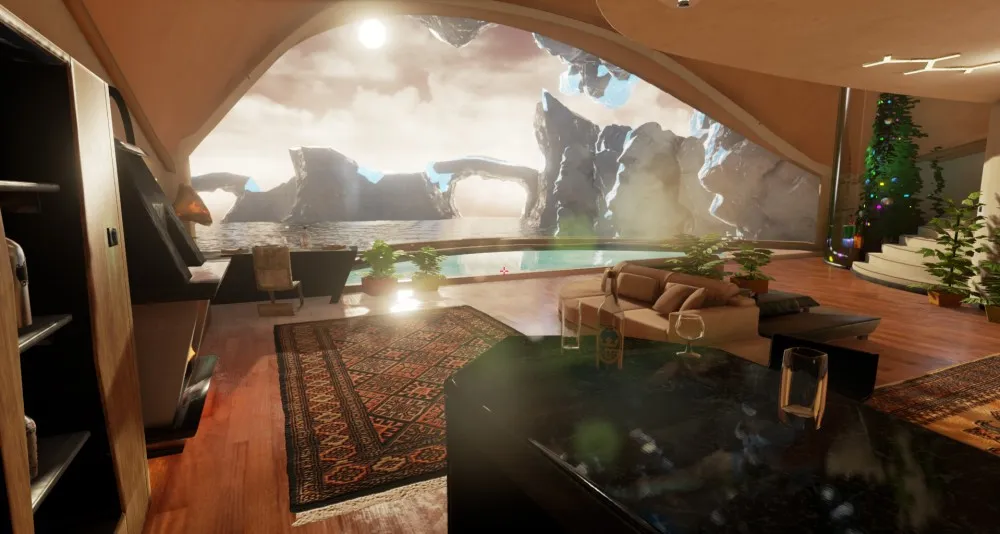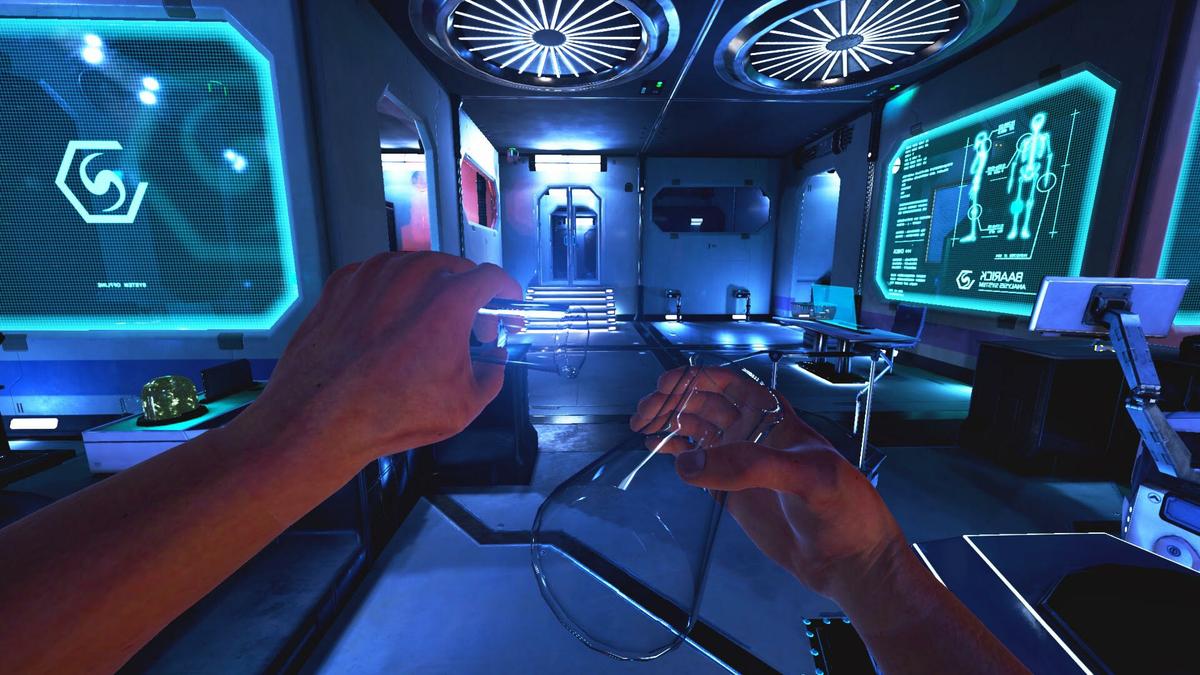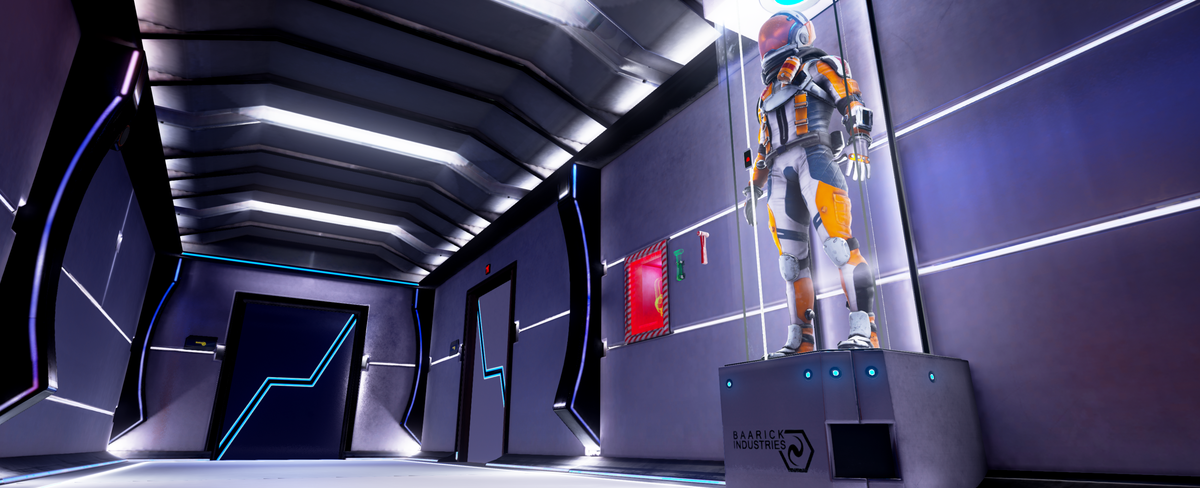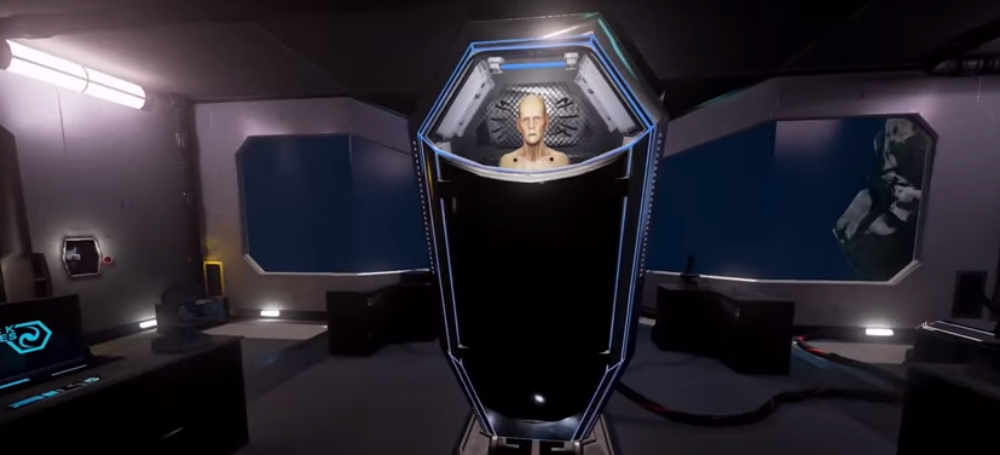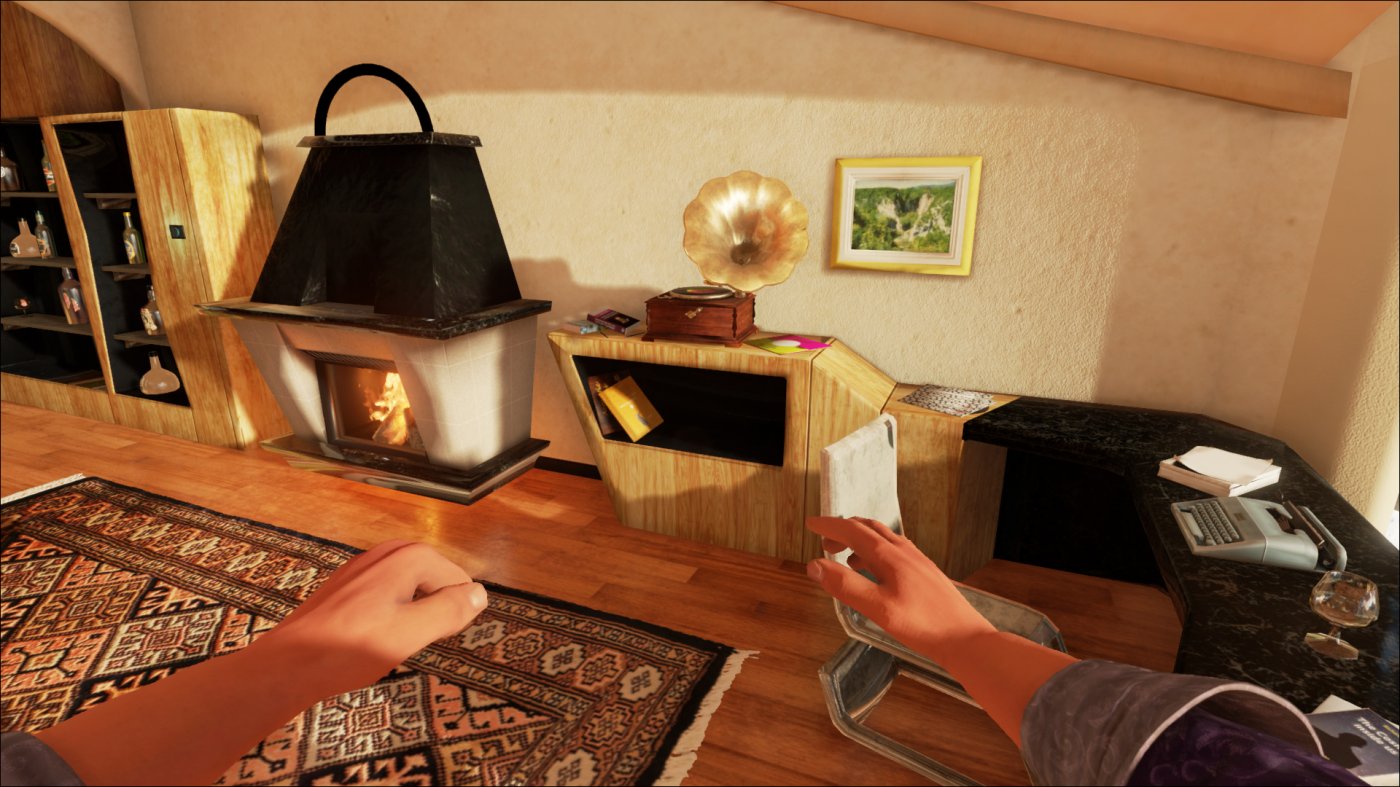Since the post-modern literary movement, there is a fondness in art to go meta, to comment on a genre or a medium within that very thing. So when I find myself playing a game in virtual reality that takes place in virtual reality I expect some clever or amusing moments. But what I found in Loading Human felt developed by rote that doesn’t live up to its premise.
Loading Human: Chapter 1 is the first part of a trilogy of episodes. It is a science fiction point-and-click adventure that was just released — we reviewed the PlayStation VR version. It was made by a London-based developer named Untold Games, published by Maximum Games. You play as Prometheus, an astronaut in the year 2184 who will one day travel into deep space to find a powerful source of energy called the Quintessence, which can power the nanobots that can save the life of your dying father, the inventor of the Dark Matter engine that makes such space travel possible.
The point-and-click adventure is a niche genre that was once a mainstay of computer games. During it’s height of the ’80s and early ’90s there were classics like Secret of Monkey Island, Kings Quest, and Myst. Loading Human is played in first person and has the core genre convention of using random items to solve puzzles, walking around looking for that one thing you need to move forward in the story. It can be frustrating and in Loading Human there were several moments when it was. None of the puzzles were especially intriguing or amusingly diabolical.
The game’s control schemes work well, fortunately making the slow travel around the game’s antarctic setting somewhat more tolerable. With the Move controllers acting as your hands, you can point one forward and hold the top button to walk. You can point to the side or behind and tap the top button to instantly turn in that direction. To grab items or levers you maneuver the hand to the object and hold the trigger button. To push buttons it is similar, but you just tap the trigger.
There were times where items were just out of reach or my hand wasn’t perfectly placed so pushing a button in the game wouldn’t occur, which was frustrating and extended the solution-hunt for a puzzle. Those issues are fewer when you play with the standard DualShock controller. You move with the left analog and you make instant 90-degree turns with the right analog. You have a floating cursor you move with your head, grabbing highlighted items with the shoulder buttons or activating a switch with the X button. There are fewer bugs this way, but the sense of immersion is much lower.
Graphically, the game uses the Unreal Engine 4 to modest effect. The visuals are competent and the design of things is either generic white-futuristic or luxurious wood. The base in the middle of nowhere has a decent layout, though traveling via elevator to other floors can feel tedious. The human characters look pretty artificial, mainly your father Dorian and your colleague-come-love interest Alice. It can be hard to get involved in a dialogue when the facial expressions of those you are talking to are so simple.
Speaking of dialogue, the writing in Loading Human isn’t very remarkable. The wooden acting by all involved doesn’t help either — the AI computer voice Lucy is the most entertaining and it is an artificial one like you have heard on dozens of sci-fi shows. The plot is unnecessarily complex. The loading screens of the game imply that you are in 2196, using virtual reality to relive memories from 2184 and 2185. The first scenes are in 2185, about to take off on your space mission, when things start to go wrong at the base.
While dealing with launch issues, you flashback over events from the last 18 months, when Prometheus first arrived at the base in Antarctica. And when he talked to his father about the mission. And when he first met Alice. And when they worked together on something, and so on. The entirety of Chapter 1 of Loading Human is played this way, culminating in a return to that day right before the launch. So the entirety of the game takes place in the base, consisting of living quarters and labs, with the upcoming chapters likely focusing on the space mission itself. (Though there is a sequence where you play some quick VR simulations of operations aboard the spacecraft.)
A big part of the game’s storytelling is the protagonist’s relationships with his father, his romantic interest, and his AI companion. But with each of those you only have three or four meaningful exchanges, which isn’t much time to establish a connection. And with the dialogue and acting being mediocre, the relationships never take off. Yes, the AI Lucy was fun at times, but an artificial voice cracking jokes and referencing the classic film 2001 does not make a game. As for the romance with Alice, when it ultimately comes down to a puzzle to assemble the ingredients for the perfect date with her, and no actual dialogue choices, it falls flat.

